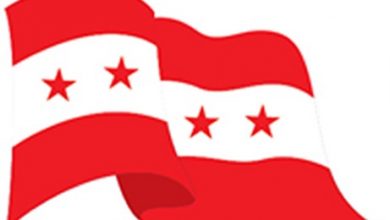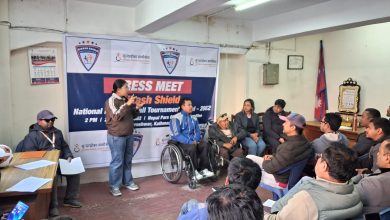Devkota: Nepal’s World Class Literary Genius

Birat Anupam
A day after Laxmi Prasad Devkota’s demise, on 15 September 1959, Nepal’s first elected Prime Minister BP Koirala praised the poet from the rostrum of the first parliament. According to the book titled ‘Pahilo Sansad’ (First Parliament) written by Jagat Nepal, the parliament observed a 2-minute-long silence mourning the loss of the legendary literary figure at the age of 49.
Himself a noted Nepali litterateur, Koirala said, ”It is not an exaggeration to say that Nepal lost the greatest figure in the history of Nepali literature.” In an essay written by Ved Mehta and published in The New Yorker on 29 December 1959, Devkota was described as ”the poet laureate of Nepal, L.P. Devkota, nicknamed Mount Everest.”
An essay anthology named ‘Gone Away’ authored by Dom Moraes, published from the UK in 1960, contained a chapter called ‘Dying Poet’ which is dedicated to Nepali poet Devkota. In the Russian front, Devkota generated more impressive space.
According to an article written by Janga B. Chauhan in 2009 in Bodhi, a journal published by Kathmandu University, Devkota was widely praised in the Russian region. The 1963 Asia-Africa Today, a publication by the Russian Academy, said, ”A poet dies. But his work is immortal. Devkota’s poems are living examples.”
“Devkota was representing Nepal in the 1958 Afro-Asian Writers’ Conference organized in Uzbekistan. Russian scholar Dr. Ludmila Aganina praised Devkota. She wrote, ”An expert of the English language, world civilization, and Nepalese culture, Devkota was among the few personalities whom Nepal had nominated for an international conference.”
In the book titled ‘Selected Works of L.P. Devkota’ jointly published in 1999, Ludmila has compared Devkota with the first Nobel Literature Prize Winner from Asia, Rabindranath Tagore. She has written, ”Devkota is compared with Bengali writer Rabindranath Tagore, Hindi chhayavadis, and western romanticists. But he was not a photocopy of others.
Yuri Malishev, the famous cosmonaut having history of two instances of being awarded the medal of the ”Hero of the Soviet Union” has also praised Devkota wholeheartedly. In the post Soviet Union era, he linked Devkota to talk on efforts to make a beautiful world.
“His writings are original, based on his own style, Devkota’s style. He loved traditional Nepali folk songs, and wrote poems imbued with Nepali traditions, which made him popular among Nepali people.”
Also, a one-time president of the Society for Russia-Nepal Friendship, he wrote, ”The present world is changing rapidly. We are standing on the threshold of a meaningful century. So, we must have a humble heart to make this world a common, beautiful home.
We must not break this world into pieces. For this good cause, there are great thinkers, writers, and poets who are actively working. Among them stands Laxmi Prasad Devkota, a talented poet of world civilization.”

Devkota has written poems in the name of Mao and Gandhi. He has also rubbed shoulders with Rabindranath Tagore. Having toured the world, Devkota had world-class literary knowledge.
Once you go to his museum at Maitidevi, Kathmandu, you can glance Devkota’s collections, from American Review to Peking Review and literary volumes on India, China, and Russia. That’s the reason literary pilgrims from all around the world come to the Mahakavi Laxmi Prasad Devkota Museum.
According to Jayaraj Joshi, Indians, Chinese, Russians, among others, have visited the museum. Devkota has created an all-time space not only for diverse genres, poetry, essays, translation, fiction, and the likes, but also for diverse geographies. This makes true to BP Koirala’s statement that ”It is not an exaggeration to say that Nepal lost the greatest figure in the history of Nepali literature.”






Comments